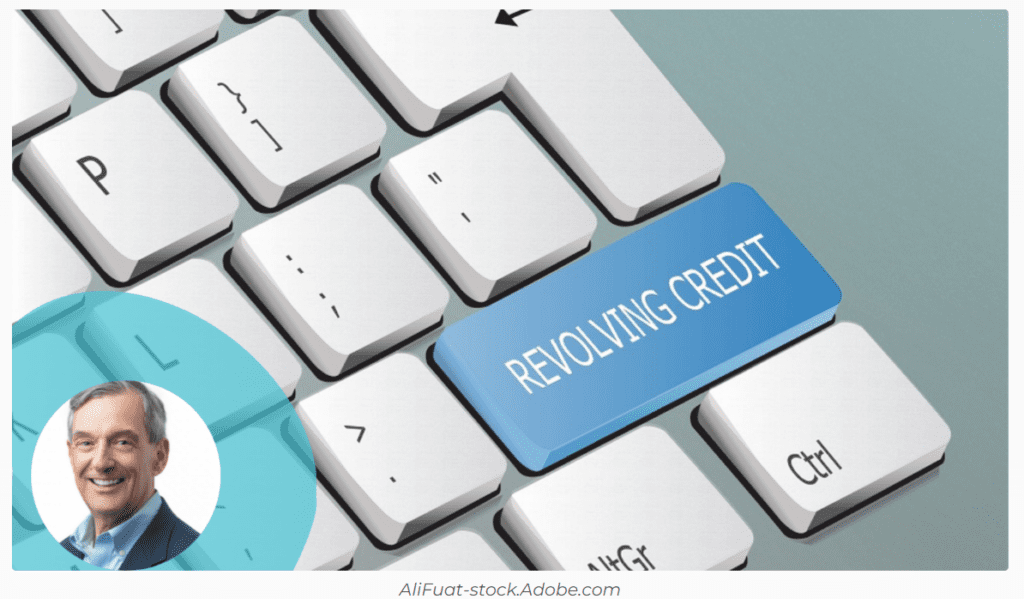Digital Revolving Credit: A Potentially More Responsible Financing Option than BNPL
Read FuturePay CEO Tim Harris’ latest column, in the Executive Viewpoints section of Retail TouchPoints, where he talks about some of the potential financial pitfalls of BNPL as opposed to Digital Revolving Credit. As seen in Retail TouchPoints on November 27.



[image from Retail TouchPoints]
As the CEO of FuturePay, I’d like to shed light on some of the benefits of digital revolving credit over buy now, pay later (BNPL) options. Digital revolving credit is an ecommerce financing option that allows users to instantly open a revolving line of credit in the shopping cart that can be used and reused repeatedly over a lifetime. This is in comparison to BNPL’s payment option, which finances individual purchases with separate fixed-term installment loans. Digital revolving credit outpaces BNPL in many respects, including by way of its flexibility, its security and its more stringent consumer protections. Here’s how:
BNPL initially presents itself as an enticing choice for buyers because of its perceived ease of use and instant approvals. BNPL platforms often only conduct a superficial credit check and tempt users with zero interest rates.
However, there’s a catch: If a purchaser misses their payment obligations, they could be slapped with significant fees and accrued interest that may be unmanageable, especially for those living paycheck-to-paycheck. According to a recent CBS News financial survey, more than half of the respondents (60+%) are currently living paycheck to paycheck — including many in high annual income brackets of $100,000/year or more.
Other reports have noted a concerning trend where individuals are financing essential items like groceries using BNPL, or are using BNPL purchases as a financial bridge between paychecks. This may not be a wise decision.
Since BNPL credit underwriting is frequently less stringent than traditional credit products, there’s little to stop consumers from getting themselves into a difficult position this way. They initially think they’re signing up for a quick and interest-free option to extend their payment horizons. But if they indulge in multiple BNPL purchases and can’t meet those obligations, users can find themselves in a penalty situation.
Contrastingly, digital revolving credit operates much like trusted credit cards and is governed by regulations such as The CARD Act (Credit Card Accountability Responsibility and Disclosure Act of 2009). This ensures robust credit underwriting, minimizing the risk of consumers signing up for financing beyond their means. The inherent flexibility of digital revolving credit empowers users to have greater control over their finances, reducing potential financial pitfalls.
A modern digital revolving credit offering like FuturePay’s MyTab requires a hard credit pull from a credit agency, but due to sophisticated, AI-powered technology, approvals can still take place near-instantly. This allows consumers to finance their transactions with the same immediacy as a BNPL payment. Another benefit: digital revolving credit allows users to structure a flexible payment plan based on their own budgetary needs, as opposed to BNPL’s fixed payment installment plans.
In addition, digital revolving credit consolidates all purchases into a single account that stays open and can be used indefinitely. This way, the consumer has greater visibility over multiple purchases and has only one consolidated payment schedule.
In contrast, BNPL purchases are all separate installment loans. The consumer must keep track of when each installment loan matures, and must make numerous installment payments on different schedules. Imagine the complex payment schedules people could easily end up with through BNPL, especially if they use this method repeatedly between paychecks.
In summary, while BNPL might offer instant gratification, digital revolving credit promotes better long-term financial flexibility and peace of mind.
Global software industry leader Tim Harris is CEO at FuturePay, providers of MyTab, a digital revolving credit ecommerce financing solution. A long-time executive and entrepreneur in the high-tech and electronic payments industry, he has overseen strategy, sales, business development, marketing and strategic partnerships at major software development companies.